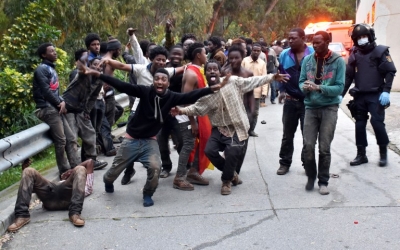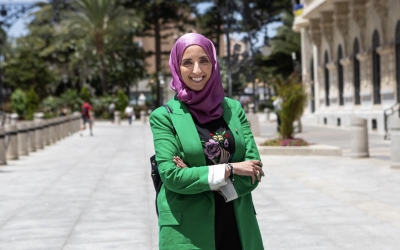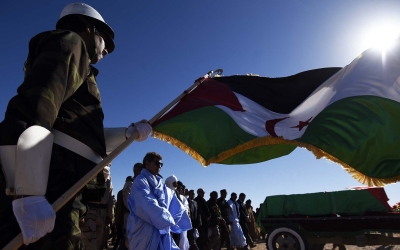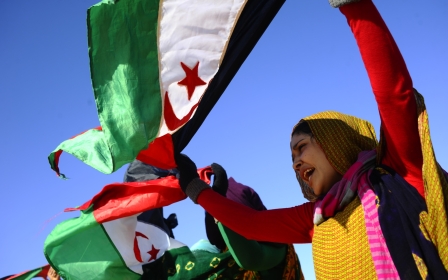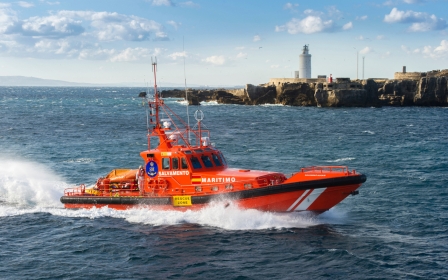Melilla migrant deaths: Who's to blame for the incident on Morocco-Spain border?
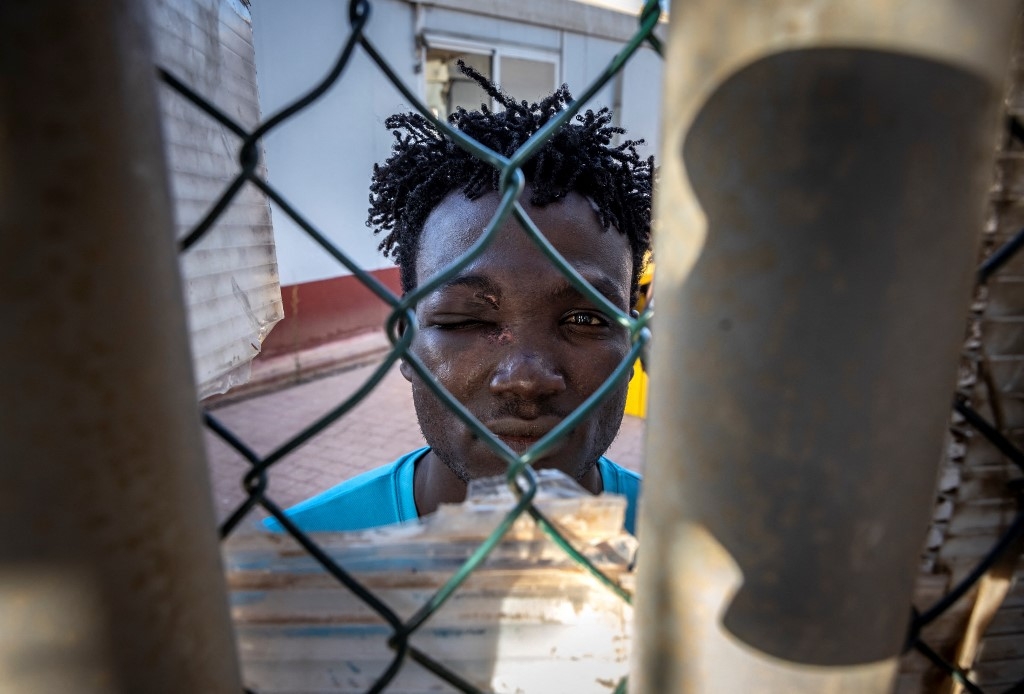
The deaths of at least 23 people while trying to cross from Morocco to the Spanish enclave of Melilla last week was the result of violence and complicity by police from both sides of the border, human rights activists have said.
"Moroccan police resorted to disproportionate violence against migrants and did not hesitate to strike with truncheons and fire tear gas," said Omar Naji, a human rights defender working for the Moroccan Association for Human Rights (AMDH).
'No one bothered to come to the aid of the migrants on the ground during and after the clash. Some of them were crying in pain for long hours in the sun,'
- Omar Naji, human rights defender
When a number of people, mostly from sub-Saharan African countries, were wounded, police deliberately refrained from helping them, Naji told Middle East Eye.
“No one bothered to come to the aid of the migrants on the ground during and after the clash. Some of them were crying in pain for long hours in the sun,” he said.
Melilla and Ceuta, Spain's other tiny North African enclave, are the European Union's only land borders in Africa, which makes them a target for people hoping to cross into Europe from the African continent.
New MEE newsletter: Jerusalem Dispatch
Sign up to get the latest insights and analysis on Israel-Palestine, alongside Turkey Unpacked and other MEE newsletters
Naji pointed out that the disaster occurred partly due to the large number of people, estimated at 1,500, who gathered at the Barrio Chino border crossing, which is very narrow, thus prone to deadly stampedes.
But Spanish authorities share part of the blame “because they have not mobilised their ambulances and rescuers, although they opened the border to allow the passage of Moroccan police to pick up migrants who had managed to jump the barrier,” he said, accusing Spanish police of breaking international law by engaging in “hot returns,” namely the direct deportations of asylum seekers without individual examination.
Morocco's interior ministry said the casualties occurred when people tried to climb an iron fence.
Some of them fell from the top of the barrier separating the two sides, a Moroccan official said, adding that 140 security personnel and 76 civilians were injured during the attempt to cross.
Naji’s AMDH interpreted the incident as a consequence of the latest Moroccan-Spanish detente as it happened just weeks after the two sides resolved a year-long diplomatic rift.
The organisation has warned against burying the corpses before their deaths had been properly investigated.
Naji said he has been contacted by Sudanese families wishing to know if one of their relatives was among the victims, but Moroccan authorities have so far denied them access to the morgue to identify the bodies of those who died during the incident.
Local human rights groups estimate that the fatalities are expected to rise, as many of those wounded are in critical condition.
Some 130 people nevertheless managed to enter Melilla, where they are currently in Covid-19 quarantine in a temporary accommodation centre.
“Our teams on the ground have not really met them yet, they talk to the migrants through a small slot. The first group should be released this Friday,” said Helena Maleno Garzon, president of the migrant protection organisation Caminando Fronteras (Walking Borders).
Garzon’s activism led to her forced expulsion from Morocco in 2021, where she had resided for almost 20 years. She is now based in Madrid.
Unrest near border
Naji said the human toll from Friday’s incident is already the deadliest in the history of this border between Morocco and Spain, while Garzon's organisation has said the deaths from the Melilla incident could be as high as 37.
Naji said that the situation in the area had already been tense for several weeks prior to the incident.
“Clashes between migrants and law enforcement officers erupted every day of the week before the Friday events. Moroccan police were seeking to disperse the migrants who are camping in a forest about 20 kilometres from the border in question. The people couldn't even go down to the neighbouring villages to get food,” said Naji.
When caught by the authorities, these people run the risk of being deported, not abroad, but to the desert regions of the centre and south of the kingdom, far from urban centres.
"This creates frustration among the migrants who are already living in inhuman conditions in these camps," said Garzon, adding that there are "mercenaries" who accompany elements of the Moroccan security forces during their operations in the makeshift camps.
The overwhelming majority of people arrested by Moroccan police have Sudanese nationality, while some of them are Chadians or Malians, Garzon said, explaining that this is due to the dangers of using the Central Mediterranean migration route.
“Migrants coming from Sudan or the Horn of Africa tended to go through Libya to cross the sea to Italy. But because of the risks they face in the Libyan desert, they prefer to go through Algeria, before reaching the east and north of Morocco,” she said.
Morocco, through its embassy in Madrid, has accused Algeria of “deliberate laxity” in the control of its borders with Morocco. The two neighbouring countries are in a tense diplomatic standoff over Western Sahara, which Morocco claims as its territory, while Algeria backs the Sahrawi independence movement.
The embassy also cited "the extreme violence of the attackers", considering that "the strategy of the assault denotes a high sense of organisation, a planned progression and a hierarchy of seasoned and trained leaders with profiles of experienced militiamen in conflict zones”.
Algeria blamed
On Monday, nearly 60 people seeking to cross to Spain were brought before the Moroccan courts in Nador, northeast of the country.
They are divided into two groups. The first is made up of around 30 people prosecuted for minor offences. They will face trial on Monday at the court of first instance.
The second includes those accused of crimes including "working with a criminal gang to organise and facilitate illegal immigration abroad". The trial is scheduled for 13 July at the Nador Court of Appeal.
In recent days, several intergovernmental and non-governmental organisations have called for the opening of an independent investigation into the events of Friday 24 June.
Moussa Faki Mahamat, president of the African Union Commission, denounced "the violent and degrading treatment of African migrants".
United Nations spokesperson Stephane Dujarric spoke of "excessive use of force" by Morocco and Spain which resulted in "the death of dozens of human beings".
In Morocco, the National Human Rights Council has announced the formation of an “exploratory mission” which will visit Nador and the surrounding area.
*This article was first published on Middle East Eye's French website.
Middle East Eye delivers independent and unrivalled coverage and analysis of the Middle East, North Africa and beyond. To learn more about republishing this content and the associated fees, please fill out this form. More about MEE can be found here.


